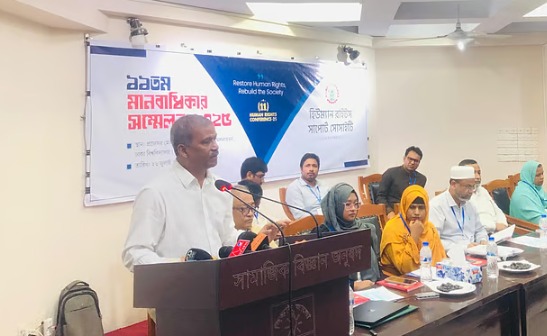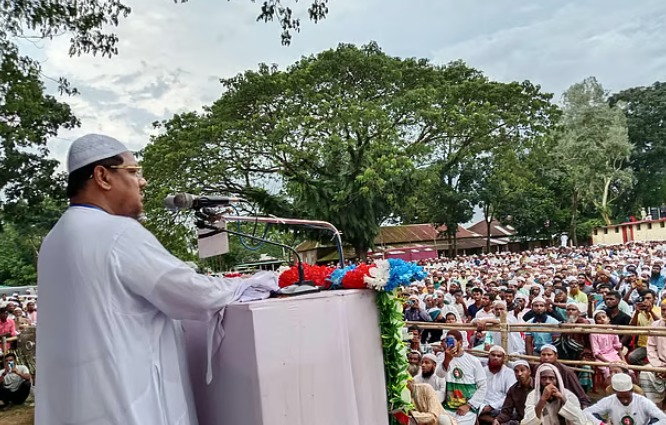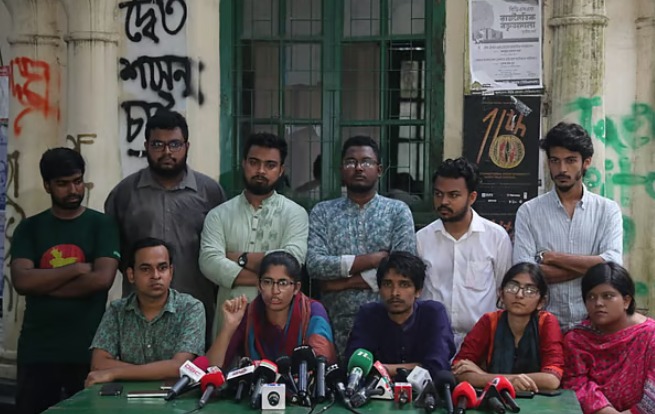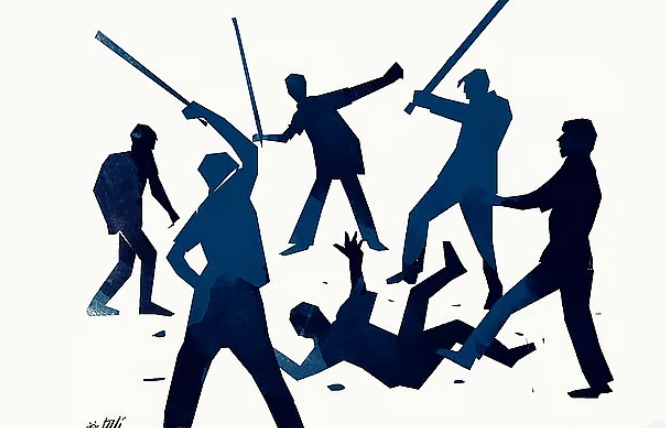Desk Report,
A party becomes a monster when it loses its fear of losing power: Legal Advisor
Law Advisor Professor Asif Nazrul said, “When a party thinks that it will lose power after five years, they do less bad things even out of fear. They violate human rights less. When the fear of losing power of a party goes away, they turn into monsters. We can understand this when we look at the past Awami regime.”
A party becomes a monster when it loses its fear of losing power: Legal Advisor
Asif Nazrul also said, “First of all, the problems of the three main organs of the state, the executive branch, the law branch and the judiciary, must be solved. Human rights cannot be maintained by leaving problems in these three departments. We must put our hands on the real places. We are trying to fix these places.”
Asif Nazrul said these things in his speech as the chief guest at the 11th Human Rights Conference organized at the Muzaffar Ahmed Chowdhury Auditorium of Dhaka University on Saturday morning. The conference was organized by the human rights organization Human Rights Support Society (HRSS). The organization’s chairperson Shahzada Al Amin presided over the conference, which was attended by Md. Nur Khan, Huma Khan, Senior Human Rights Advisor of the United Nations Resident Coordinator’s Office (UNRCO) Bangladesh, Professor Mohammad Ekramul Haque, Dean of the Faculty of Law, University of Dhaka, Sara Hossain, Executive Director of Bangladesh Legal Aid and Services Trust (BLAST), Saifuddin Ahmed, Lecturer, Department of Peace and Conflict Studies, University of Dhaka, delivered speeches. In addition, family members of those killed in the July-August coup, injured and victims of disappearances during the previous government delivered speeches at the conference.
Professor Asif Nazrul said, ‘From 1991 to 2011-12, the government came to power through a fairly good electoral process. Due to which we started our journey towards something better. During Sheikh Hasina’s rule, candidates from other parties won many mayoral elections in 2013 as well. There was transparency till then.’
Many people say that elections mean everything, the legal advisor said, ‘Those who say this should see that the best time in Bangladesh was from 1991 to 2012-13. Because, there was a peaceful transfer of power then. If there was this, there would be accountability to the people. Then the country moved towards the better. All of our parties have problems. When a party thinks that it will lose power after five years, then even out of fear, they will do less bad things. They will reduce human rights violations. When the fear of losing power of a party goes away, they turn into monsters. Which we can understand from the past Awami regime. Because of which more than a thousand students and the public had to give their lives. Thousands of people had to become disabled. What a terrible price they had to pay.’
Emphasizing on building a human rights culture, Asif Nazrul said, ‘Even then, we have to remain optimistic. However, hope must be in line with reality. Our situation needs to change. But it will not happen suddenly. We will gradually move towards the better. We will move towards a better human rights situation. For this, we have to develop a human rights culture. In addition, if we can hold the next three or four elections correctly, if legal and administrative reforms are carried out correctly, and if the practice of human rights is developed among everyone, then only we will be able to reach the desired goal.’
Noting that human rights cannot be maintained by leaving problems in the three main organs of the state, the legal advisor said, ‘Implementing human rights is a very difficult task. Many people think that by passing some good laws, the human rights problem will be solved. In fact, it will not. First of all, the problems of the three main organs of the state, the executive branch, the legislative branch, and the judiciary, must be solved. Human rights cannot be maintained by leaving problems in these three departments. We have to put our hands on the real places. We are trying to fix these places.’
Human rights activist Md. Nur Khan said, it is going to be a year since the July and August coups. We have to be careful not to do the same things that the previous fascists did. Think about what the consequences would have been if we had spoken out against the dictatorship a year ago. …The country is heading towards a dictatorship that is bigger than autocracy. If this is not stopped now, it will destroy the entire democratic system. Autocracy does not only reside in state power. Autocracy resides in a psychological place beyond state power. We must also take that into consideration.’
Lawyer Sara Hossain said, ‘We have two big and difficult responsibilities ahead of us at the moment. One is to prosecute the human rights violations that occurred in July and before. We must stand by these families. It is not enough to just give compensation, we must try to find out how their lives can actually be repaired. In addition, why were such human rights violations committed? Why did those whose job it is to maintain law and order go in the opposite direction? We must also find out the reason for that.’




